The Ultimate Study Abroad Packing Guide
Stressed about what to pack for your study abroad trip? We've got you covered. Keep reading for a list of packing essentials, tips to avoid overpacking, and even what items should be left at home.
TLDR 👀
- Don’t forget the essentials: passport, prescription medicines, local currencies, travel-sized toiletries, power adapters, and face masks.
- It’s important to bring photocopies of your passport and visa, just in case the originals get stolen.
- Pack light! Opt for a sturdy backpack, instead of a large suitcase.
- If you know you can purchase specific items in your host country, it may be smarter to buy it there and save space, rather than bring it from home -- however, you should consider the cost too.
- Dress according to the region, weather conditions, and country’s culture norms. Do your research! Don’t show up in leggings and a crop top, if the locals are in rain boots and modest clothing.
- Try buying cheap but functional versions of some items (watches, wallets, sunglasses) that will get you through your time abroad but won’t break your heart if they go missing.
- Be strategic about what you bring with you abroad, and don’t forget to leave some extra space in your bag for all the cool, new souvenirs you’ll be bringing back home.

You’ve got all your required visas, you've been brushing up on the local language on Duolingo, and you’re ready to start your study abroad adventure... once you pack, that is!
Packing for a beach vacation is easy: sunscreen, sandals, swimsuit, sunglasses, and you’re all set! Packing for six months or even a year studying in another country – well, that’s a bit higher on the difficulty scale.
Though seemingly daunting, packing for your study abroad trip is easier than you might think. With this guide, we’ll be outlining the essentials you’ll need to bring, how to navigate clothes packing, and even what items should be left alone.
It should serve as a great jumping-off point, no matter where your study abroad adventures take you!
What to Pack for Study Abroad: The Essentials
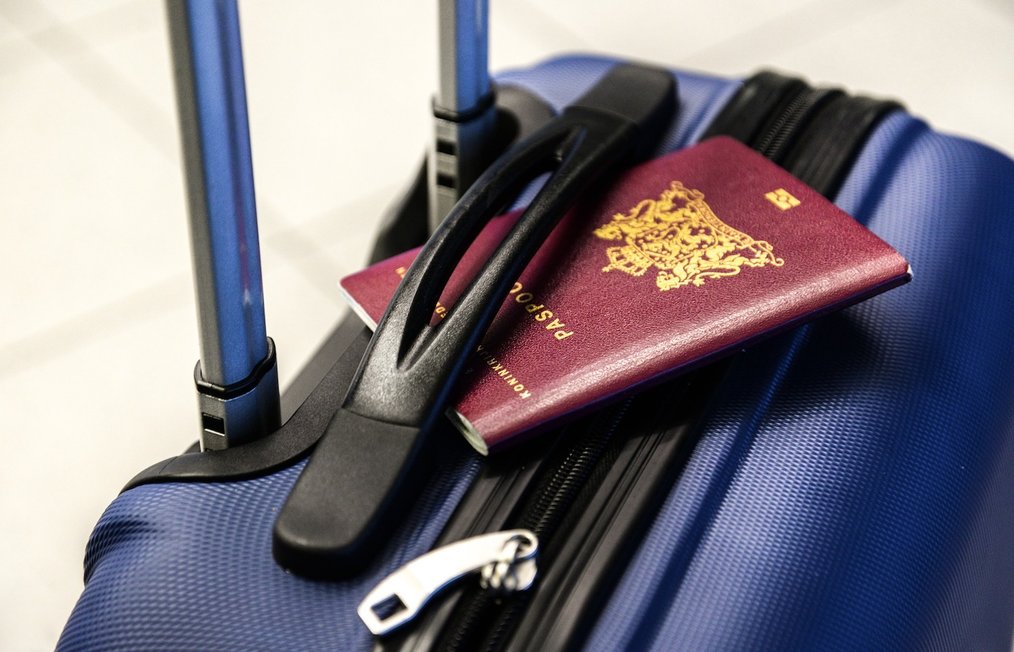
These are the things you definitely don’t want to forget. In fact, everything on your essentials list should be packed in a carry-on bag rather than a checked bag, just in case there’s a luggage thief on the loose.
Your essentials should include:
1. Passport & Requisite Visa (Plus Photocopies)
Be sure to store the photocopies in a separate place from the originals: these will make replacing both passport and visa at the American consulate a whole lot easier if ever the originals should be lost or stolen.
2. Prescription Medications (and the prescription!)
If you're taking any prescription medications, it's a good idea to get enough to ensure you're covered the whole time you're away. Foreign pharmacists likely will not honor an American prescription, but it’s better to have a copy of it so that you can show it to a local doctor in case you need more.
3. Local Currency
These days, the best way to gain access to foreign funds tends to be to use a U.S. credit or debit card, but you may want to travel with a little bit of foreign currency or traveler's checks, just in case.
4. Travel-Size Essential Toiletries
Depending on your regimen at home, you may find that more toiletries are classed as "essential" than others. We’d classify must-have essentials as deodorant, toothpaste, toothbrush, shampoo, conditioner, and body wash, and they should definitely be in your carry-on bag.
What counts as "essential" will also depend on the region where you're traveling: some, more urban locales will grant you easy access to a pharmacy or para-pharmacy, where you can get shampoo, deodorant, and moisturizer. Other regions require a trip just to get to the supermarket. Be sure to ask your study abroad coordinator what this will look like in your case so that you can bring more essential toiletries if needed.
We also recommend packing enough shampoo, conditioner, toothpaste, etc. for your first 2-4 weeks there. While you don't want to waste space on things you can buy later, you also don't want to land in your host country and immediately have to worry about how you’ll brush your teeth either! Pack enough of what you'll need while settling in and, once you run low, we're sure you'll have a good understanding of your host country’s supermarket situation.
However, our one exception to the “bring only travel-size toiletries rule” are specialty items such as insect repellent, sunscreen, and contact lens solution. If you need them, pack them, as these things tend to be outrageously expensive in other countries and it’s worth carrying them with you, rather than paying up to three times as much to buy a tiny bottle once you’re there.
5. Power Adapters & Converters
Whether it's for your phone, your computer, or your e-reader, you'll likely want to bring a few chargers on your journey, and for that, you'll need a converter and possibly an adapter. Not all countries use the same electricity voltage, which means that merely changing the shape of the plug might not be enough to make your charger work – and could even be dangerous and short out the device. Be sure to verify which plugs and voltage are used in the country you're traveling to so that you have the right adapters for all your devices.
Of course, there are a few variables to keep in mind that might make this list slightly different for you. Not all regions will have easy access to shops and supermarkets, so depending on where you're studying, you may need to bring more toiletries with you.
6. Face Masks & Hand Sanitizer
Safety first! With the quick spread of COVID-19, it’s best to keep face masks and hand sanitizer with you at all times, to help protect yourself from germs and the chances of getting sick.
What to Pack for Study Abroad: Clothes
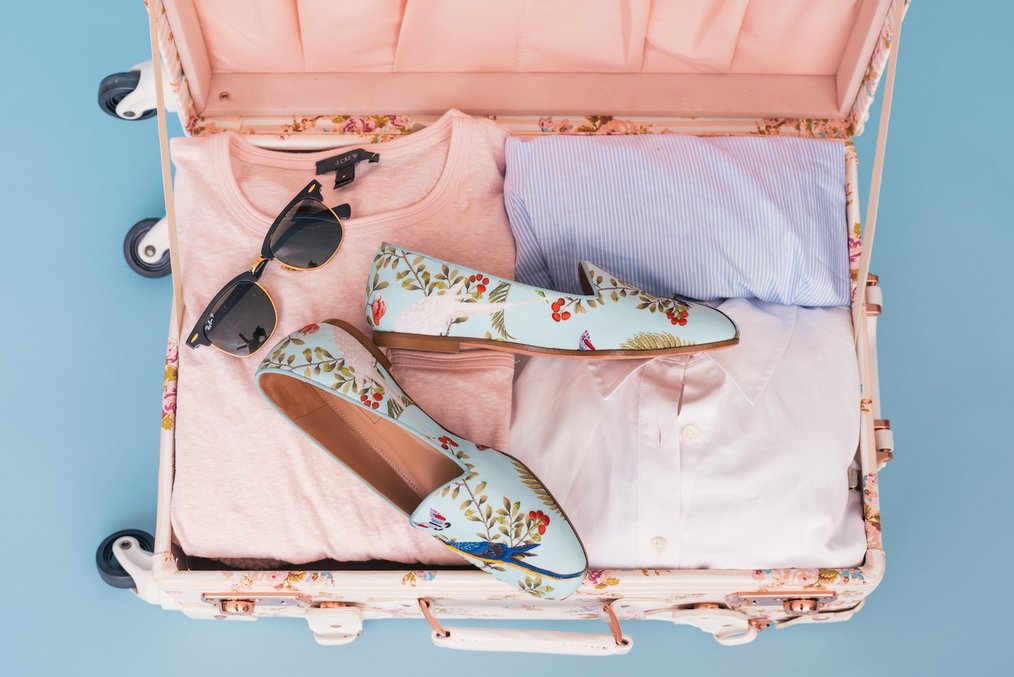
When packing clothes for study abroad, you’ll want to adhere to these five essential rules, plus plan accordingly to the weather and region you’re traveling to.
First, light layers are key. Consider bringing an assortment of long- and short-sleeved tops, sweaters, and lighter jackets that you can mix and match depending on the weather, and unless you're studying abroad in the Russian tundra, leave your puffy coat at home.
Second, remember that solid colors make less of a statement than patterns, which can easily reveal themselves as repeat items. Pack an assortment of simpler clothing, and you’ll be able to wear it more often without drawing attention to your reduced wardrobe.
Third, bear in mind the local culture. This will vary greatly depending on where you’re studying, but standards of modesty and the acceptability of casual wear will vary depending on where you go. Athleisure such as leggings as pants, sweatpants, and running shoes are generally frowned upon outside of the U.S.
Fourth, consider your access to laundry, especially when packing underwear and socks. It’s always a good idea to pack more underwear than you think you’ll need, but if you have access to a washer/dryer in your dorm or hostel, that will make a big difference regarding how space in your suitcase these essential items take up. If access to laundry is difficult, consider packing some travel-size detergent packets so that you can wash underwear and socks between loads.
Fifth, remember that shoes take up space. You’ll need three essential pairs: flip-flops for the shower, one comfortable pair of walking shoes (that aren’t running shoes), and one nicer pair to wear when going out or eating dinner. Try to fight the urge to pack any more pairs than that.
We recommend packing a versatile pair of shoes that can go from class to dinner and that can take a beating (so, no, definitely not a cheap pair of H&M flats!). You’ll be surprised how quickly shoes can wear through when you’re wearing them every day. If you’re somewhere cooler, especially a big city, a pair of sturdy boots or lace-up shoes can be your best friend. And no, sneakers are not appropriate for daily use -- you’re not on campus anymore!
Don’t forget to do a little research on what people normally wear in your study abroad city -- you don’t want to be the only person in the city wearing flip-flops, or the fool caught without a raincoat during the rainy season.
What to Pack for Study Abroad: Miscellaneous
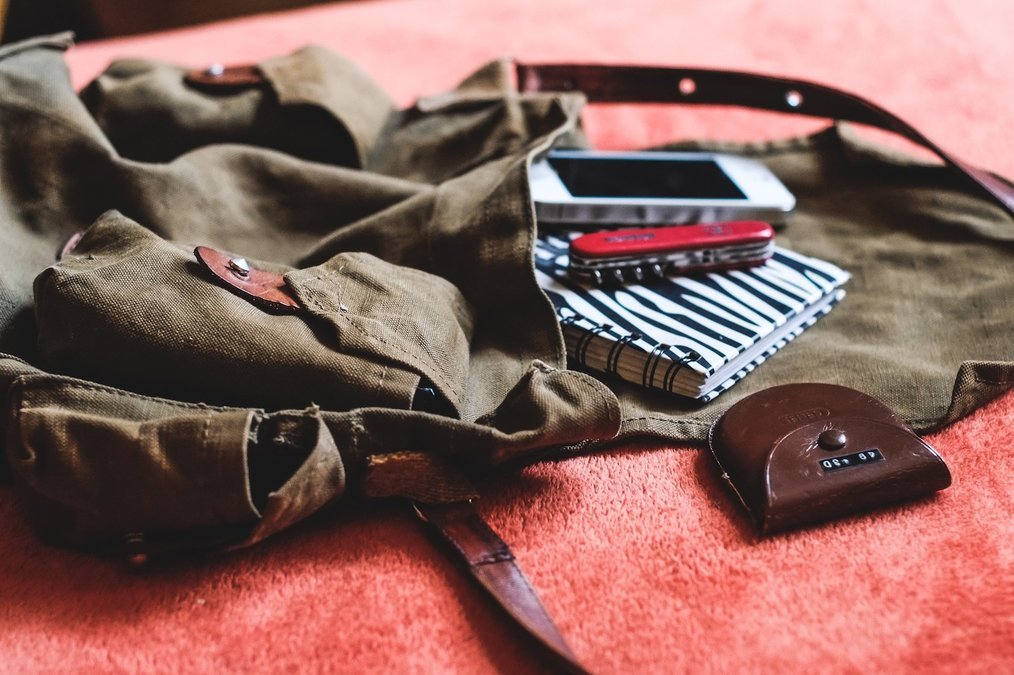
Aside from clothes and toiletries, here’s a few more items you may want to consider bringing with you:
- A small padlock, for hostel lockers
- A small backpack or day pack, for day-long excursions
- Feminine products and contraceptives
- Camera, charger, and SD card
- E-reader, like a Kindle or Nook
- Non-electronic activities, like a book, a deck of cards, or a few crossword/sudoku puzzles, for times when you don't have access to electricity
- Journal to take notes or document your trip
- Basic school supplies (notebook, pens, highlighter)
How to Resist the Urge to Overpack
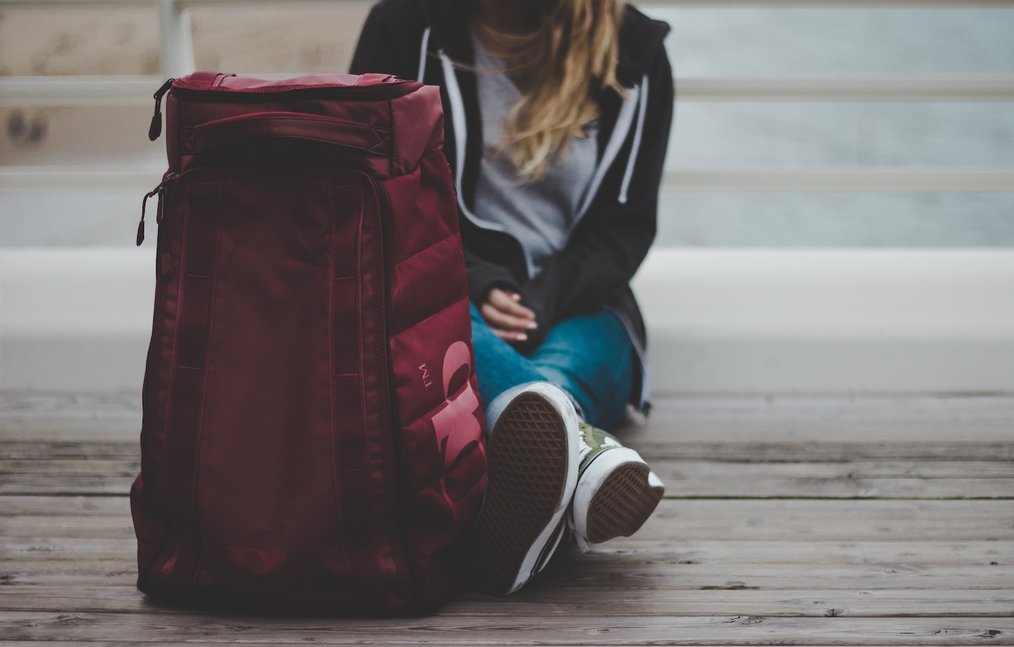
With all this in mind, you're ready to start packing! And we do mean "start." It can be tempting to overpack, so this is how we combat the problem.
First, start packing early. Lay out everything you think you'll be packing, and really ask yourself if you need all of it. Consider sorting things into categories, like shirts, pants, etc., and see how many items in each category you really need.
Second, remove any items that are bulky and unnecessary. If you haven't read War and Peace by now, you're probably not going to read it on study abroad. Also, consider leaving bulky hair dryers at home: you can buy or borrow a cheap one when you arrive and donate it when you leave.
Third, bear in mind your return trip. You’ll likely want to bring back souvenirs and mementos, so if your bags are full to bursting on your way there, you may be in trouble. One good way to navigate this is to bring a few clothing items on their last legs that you won’t mind tossing or giving away upon your return home.
Another trick for packing lighter, is to use a smaller bag. If you limit yourself with your luggage, you'll be forced to put those "maybe" pile items into the "no" pile and leave them at home. Also, if you plan on doing any weekend travel or post-study abroad travel, you won't want to lug around a large suitcase. You'll want something smaller for those short getaways.
If you can, try packing your clothes in a solid camping backpack. Trust me when I say you can probably fit everything you'll need and more in a 60 liter camping backpack. Also it’ll be much easier to navigate public transportation, hostels with no elevators, and walking around lost while trying to find said hostel, wearing a backpack, rather than lugging around an extremely large suitcase.
Plus, some outdoors stores offer student discounts and putting all that stuff on your back might encourage you to stay closer to the airlines' weight limits... Way to pack light and stick to your budget!
Recommended Programs
What Not to Pack
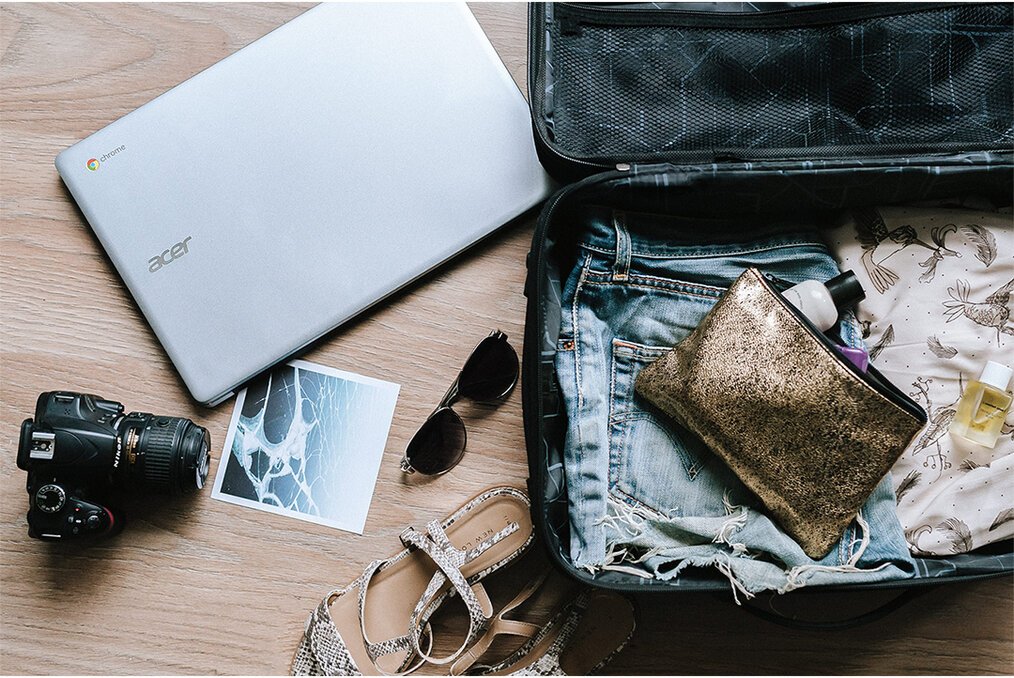
Whether you’re worried about finding your favorite conditioner in Kenya or feeling hesitant about abandoning your teddy bear at your parents’ house, it can seem like there are just too many things that need to go in your suitcase.
Here are a few items that definitely do not need to come along for the ride.
1. Heavy Liquids in Bottles (with a Few Important Exceptions)
Sure, travel-size containers are a ripoff, but for the most part, you’re going to be able to find a version -- or at least a passable approximation -- of the toiletries and other products you normally use in your study abroad country.
If you’re absolutely in love with a specific moisturizer and not having it will completely ruin your time, then by all means bring it. However, if you’re carrying Costco sized bottles of shampoo and face wash, that may not be the most efficient use of your limited suitcase space.
2. More Than Four Pairs of Shoes, Max
Unless you’re moving to Paris to study fashion, you probably don’t need to pack your entire closet.
3. Culturally Inappropriate Clothing
This should be a no-brainer, yet somehow seems to escape many of the best and brightest students out there. In most other parts of the world, especially urban campuses, it is generally unacceptable to show up to class in flip-flops, shorts, sweatpants or hoodies.
You’re an adult and you’re expected to dress like one, so don’t plan on wearing t-shirts and leggings to class every day. The same goes for internships -- if you want to be treated as a professional, you’d better dress the part. Don’t plan on wearing t-shirts and leggings to class every day.
4. Books
As a voracious bookworm, it pains me to say this, but books are one of the single worst things to pack for studying abroad. They are insanely heavy, take up lots of space and you’re not likely to read them more than once, especially if you’re doing other reading for class.
If you have one or two books you absolutely can’t live without, bring them, but leave your library collection at home. This way if you want to pick up a book or two while studying abroad, it won’t send your suitcase over the weight limit.
If you want to have reading materials with you (great for long cross-country bus or train trips!), consider investing in a Kindle, Nook or some other kind of e-reader. If it's really not for you, limit yourself to two books that you're OK parting with, and swap them for other books throughout your stay.
5. Tons of Electronics
Obviously, some things, especially laptops, are a necessity for a semester abroad. If you plan on using your phone while studying abroad, of course you’ll want to pack that too.
Beyond that, try to think really strategically about which of your devices you actually need. Electronics are probably the universal number one target for theft -- you’re way more likely to get a phone stolen than pretty much anything else you own -- so don’t bring more targets than you absolutely need, especially if you would be really upset to have any of them stolen.
Besides, you should be spending your free time outside getting to know your new city and country, not inside watching TikToks!
If you’re planning on carrying your laptop, camera, or phone around with you, it’s smart to invest in a good bag with a zipper or other dependable closure -- bonus points if it doesn’t look like a laptop bag!
6. Lots of Food or Snacks
Look, I get it -- the idea of going months without peanut butter eats me up inside (no pun intended) too. But while you think you may be unable to get through your semester abroad without constant access to Doritos -- which, news flash, they probably sell there -- weaning yourself off your favorite snacks can help you discover tasty new treats that you might never have tried otherwise.
Every country has its own unique snacks, and part of the fun of living abroad is finding out which ones you wish you could bring home with you and which ones you’d prefer to stay a continent away. It can be fun to have a bag of candy or something else unique to your home country or region to share with new friends, but refrain from trying to shove the entire grocery store into your bag.
Instead, pack spices or other cooking supplies that won’t be available there -- for example, mac and cheese packets (without the pasta), Old Bay seasoning, or ranch dressing packets. Cooking some of your favorite dishes can be a great way to bond with your host family or friends, and having these on hand can give you a little taste of home without breaking the bank or overloading your suitcase.
7. Expensive Items
Again, it’s important to remember that there’s a probability of things getting lost, stolen, broken or even “vanishing” in customs when you study abroad, so plan accordingly.
You don’t need to assume that everyone is going to try to rob you or that you can’t bring anything that’s special to you, but objects of value are big targets, so really ask yourself whether the possibility of losing something is worth the risk of bringing it. Maybe you haven’t taken off that necklace your grandmother gave you in five years, but it’s worth thinking about if you can get by without it for a few months, knowing it’ll be safe and waiting for you when you get back.
You can also buy cheap but functional versions of some items (watches, wallets, sunglasses) that will get you through your time abroad but won’t break your heart if they go missing.
8. Bedding (Duvet, Duvet Cover, Pillows)
We know you love your comfy pillow from home, but it’s best to buy bedding once you arrive in your host country. Bedding can take up a huge chunk of your luggage and every inch of space counts!
However, you may not even need your own bedding, as some programs offer furnished housing accommodations. Just make sure to double check with your study abroad advisor.
9. A Giant Suitcase
You're going away for a long time, and it seems logical that you'll need a huge suitcase and a lot of stuff. But really, you don't. If you're spending a whole semester or year abroad, you'll accumulate things as you're there, just like you would at home, and it's more important to just bring the basics. Your stuff will be waiting for you when you get back and you can live without them for a bit!
It can also be good for your mental and emotional health to have a few non-essential pieces of home with you to help ease the transition abroad. You don’t have to completely cut yourself off from the people, things, or even sports teams that are important to you just because you’re moving to another country, but you also can’t try to bring your entire life with you.
Just be strategic about what you bring with you and what you leave for when you return -- and don’t forget to leave some extra space in your bag for everything you’ll be bringing back home.
Now, you're all set to pack for study abroad! As the famous quote goes, "When preparing to travel, lay out all your clothes and all your money. Then take half the clothes and twice the money."
Even if you don't have twice the money, just cut half the clothes, practice packing a few times, and you'll be all set by the time you set out on your amazing study abroad adventure.



